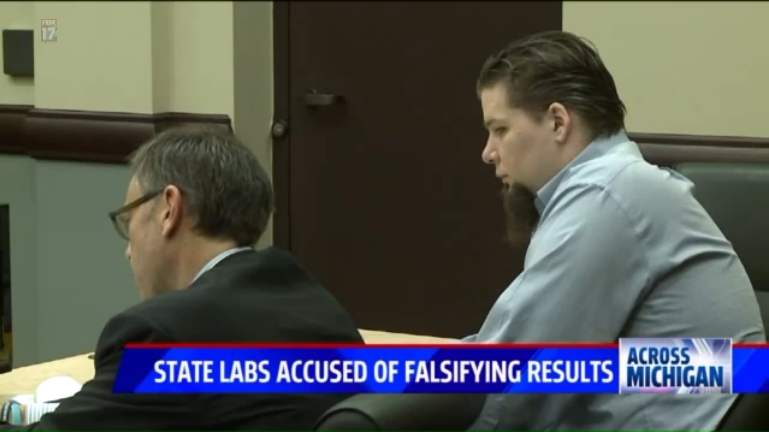U.S. SENTENCING COMMISSION VOTES TO ALLOW RETROACTIVE SENTENCE REDUCTIONS AND ANNOUNCES ITS NEXT SET OF POLICY PRIORITIES
Vote Authorizes Judges to Reduce Sentences for Eligible Incarcerated Persons Beginning February 1, 2024 Should Guidelines Become Effective
WASHINGTON, D.C. — Today the Commission, by a majority vote, allowed for delayed retroactive application of Amendment 821 relating to criminal history—meaning that certain currently incarcerated individuals could be eligible for reduced sentences made effective beginning on February 1, 2024 (unofficial text). The Commission also adopted its next set of policy priorities that include, among other things, reviewing and potentially amending how the guidelines treat acquitted conduct for purposes of sentencing as well as assessing the degree to which certain Bureau of Prisons practices are effective in meeting the purposes of sentencing.
Equipped with a quorum of commissioners for the first time since 2018, the Commission voted in April to promulgate amendments to the federal sentencing guidelines—including Amendment 821 providing for targeted, evidence-based changes to certain criminal history rules. Because two parts of that amendment reduce the sentencing range of future defendants, the Commission is required by law to consider whether judges can extend those reductions to previously sentenced individuals.
The Commission voted to delay implementation of any order granting such reduced sentences to ensure that, to the extent practicable, all individuals who are to be released have the opportunity to participate in reentry programs and transitional services that will increase the likelihood of successful reentry to society.
U.S. District Judge Carlton W. Reeves, Chair of the Commission said, “Our decision today is one that brings hope to thousands of currently incarcerated people and their families. We listened to a full spectrum of views and considered the full costs associated with incarceration balanced with the time needed to review petitions and prepare for successful reentry.”
Part A of Amendment 821 limits the overall criminal history impact of “Status Points” at §4A1.1. Part B, Subpart 1 of Amendment 821 creates a new Chapter Four guideline at §4C1.1 decreasing by two the offense levels for defendants who did not receive any criminal history points and whose instant offense did not involve specific aggravating factors.
Judge Reeves added, “These prospective changes to the criminal history rules made by the Commission in April reflect evidence-based policy determinations that apply with equal force to previously sentenced individuals. Applying these changes retroactively will increase fairness in sentencing. At the same time, the 3-month delay will help ensure that individuals released based on our decision today receive the benefit of reentry programs and transitional services essential to support their successful reentry to society, which at the same time promotes public safety.”
The Commission estimated in its July 2023 Impact Analysis that retroactive application would carry a meaningful impact for many currently incarcerated individuals:
11,495 incarcerated individuals will have a lower sentencing range under Part A of Amendment 821 relating to “Status Points” with a possible sentence reduction of 11.7%, on average.
7,272 incarcerated individuals would be eligible for a lower sentencing range based upon the established criteria under Part B of Amendment 821 relating to “Zero-Point Offenders” with a possible sentence reduction of 17.6%, on average.
Today’s vote concludes two months of deliberations and the first amendment year of policy work for the commissioners, who were all confirmed last August. As part of its deliberations, the Commission received expert testimony and public comment from a wide spectrum of stakeholders, including senators, judges, lawyers, religious leaders, doctors, professors, advocates, victims, families, and incarcerated individuals.
Have you been arrested or charged with DUI?
Charged with a Crime?
Lost Your License?
Conspiracy or CCE?
Thought Crimes?
Call Our Office for a Free Case Evaluation
This year’s guideline amendments are with Congress for a 180-day review period ending November 1, 2023. If Congress does not act to disapprove the amendments, courts can begin considering petitions for sentence reductions and could order a reduced term of imprisonment effective February 1, 2024 or later.
Today, the Commission also finalized policy priorities for the amendment year ending May 1, 2024. In light of the 40th anniversary of the Sentencing Reform Act (SRA), the Commission anticipates undertaking a number of projects examining the degree to which current sentencing, penal, and correctional practices are effective in meeting the purposes of sentencing as set forth in the SRA.
Among these issues, the Commission will work to assess the degree to which certain practices of the Bureau of Prisons are effective in meeting the purposes of sentencing as set forth in 18 U.S.C. § 3553(a)(2). The Commission will also compile and disseminate information on court-sponsored programs relating to diversion, alternatives-to-incarceration, and reentry.
The Commission will also review and potentially amend how the guidelines treat acquitted conduct for purposes of sentencing. The Supreme Court recently denied several petitions for writs of certiorari related to the use of acquitted conduct. In issuing the denials, three Justices supported the denial to allow the Commission more time to address the issue. “Last year’s amendment cycle was busy and abbreviated. The Commission appreciates the opportunity to give proper attention to acquitted conduct, and we will do so this year,” said Judge Reeves.
The Commission will continue to examine the career offender guidelines, including updating the data analyses and statutory recommendations made in the Commission’s 2016 report to Congress entitled Career Offender Sentencing Enhancements. The Commission will also continue its consideration of alternative approaches to the “categorical approach” through workshops convened to discuss the scope and impact of the career offender penalty enhancements.
The Commission will further continue its research agenda through examination of various issues, including methamphetamine offenses, sentencing differences for cases disposed of through trial versus plea, and sentences involving youthful individuals.
The Commission invited public comment on its tentative list of policy priorities in June. “We are grateful for the volume of comment the Commission received regarding priorities for the coming year,” said Chair Reeves. “We look forward to continued input from the public as we work through this year’s priorities.” A compilation of public comment can be reviewed here.
Visit www.ussc.gov for more information about the amendment process and the changes approved today.
More Posts

People v Redden & Clark – MI Medical Marijuana hearing – February 20 2013
During this February 20, 2013 hearing, Assistant Oakland County Prosecutor Beth Hand notified the court that her office is contemplating filing criminal charges against a medical doctor for his involvement in certifying two medical marijuana patients, Robert Redden...

Medical marijuana lawyers want state crime lab moved out of Michigan State Police
"The attorneys claim the policy change is leading to unfair felony charges for patients who would otherwise face misdemeanors." Posted on MichiganRadio.org A group of criminal defense attorneys says the Michigan State Police (MSP) should no longer...

Defense attorneys seek fed inquiry of MSP crime labs
Southfield — Three defense attorneys are asking the federal government to investigate the Michigan State Police crime laboratories, alleging misconduct in their testing for pending drug cases. Southfield defense attorneys Neil Rockind and Michael Komorn, along...

MI Cops Change Policy So They Can Falsely Imprison Legal Pot Smokers
In 2008, an overwhelming majority of Michigan voters approved legislation to legalize marijuana for medical use in the state. With nearly 50,000 Michigan residents arrested and incarcerated each year for controlled substance violations, the state’s prison industrial...

Attorney Alleges Authorities `Bend The Science’ To Elevate Marijuana Cases
MIRS-Michigan Independent Source Of News and Information Friday Nov 6, 2015 Maxwell LORINCZ, of Spring Lake, says a fingerprint of oil on an empty plastic container led to his arrest on a drug charge on Sept. 24, 2014. Now, a year later, the case that might have...

Drug felonies without credible proof? — Allegations of politicking in state police crime labs
GRAND RAPIDS, Mich. – First on FOX 17, we broke serious allegations that state police crime labs are being told to falsely report marijuana test results. This is resulting in misleading lab reports that an attorney claims creates felonies without real proof. ...

Attorney: Crime labs ‘falsified’ marijuana reports
A Southfield lawyer alleges the Michigan State Police crime labs have “falsified lab reports on marijuana statewide” and he’s asking a judge to dismisses charges lodged against a client. Michael Komorn, who also represents defendants in Livingston County, said...

Hearing in alleged false crime lab marijuana reporting dropped this week
OTTAWA COUNTY, Mich. – The evidentiary hearing originally set for Nov. 5 has been dropped in the case involving a medical marijuana patient charged with a disputed felony for synthetic THC, the psychoactive ingredient in marijuana. The Ottawa County Assistant...

“A non-stop political game:” Former MSP Forensic Science director on false marijuana reporting …
DEWITT, Mich. – A former director of Michigan State Police Forensic Science addressed the serious allegations FOX 17 uncovered, which accuse the Attorney General’s office and state prosecutors of influencing state police crime labs to falsely report marijuana;...

Michigan’s medical marijuana law circumvented by crime labs’ THC reports, attorney charges
Posted on MLive 10/30/15 OTTAWA COUNTY, MI – An attorney claims prosecutors pressured state police crime labs to change the way THC, the active ingredient in marijuana, is reported in an effort to circumvent Michigan's medical marijuana law. Michael...











